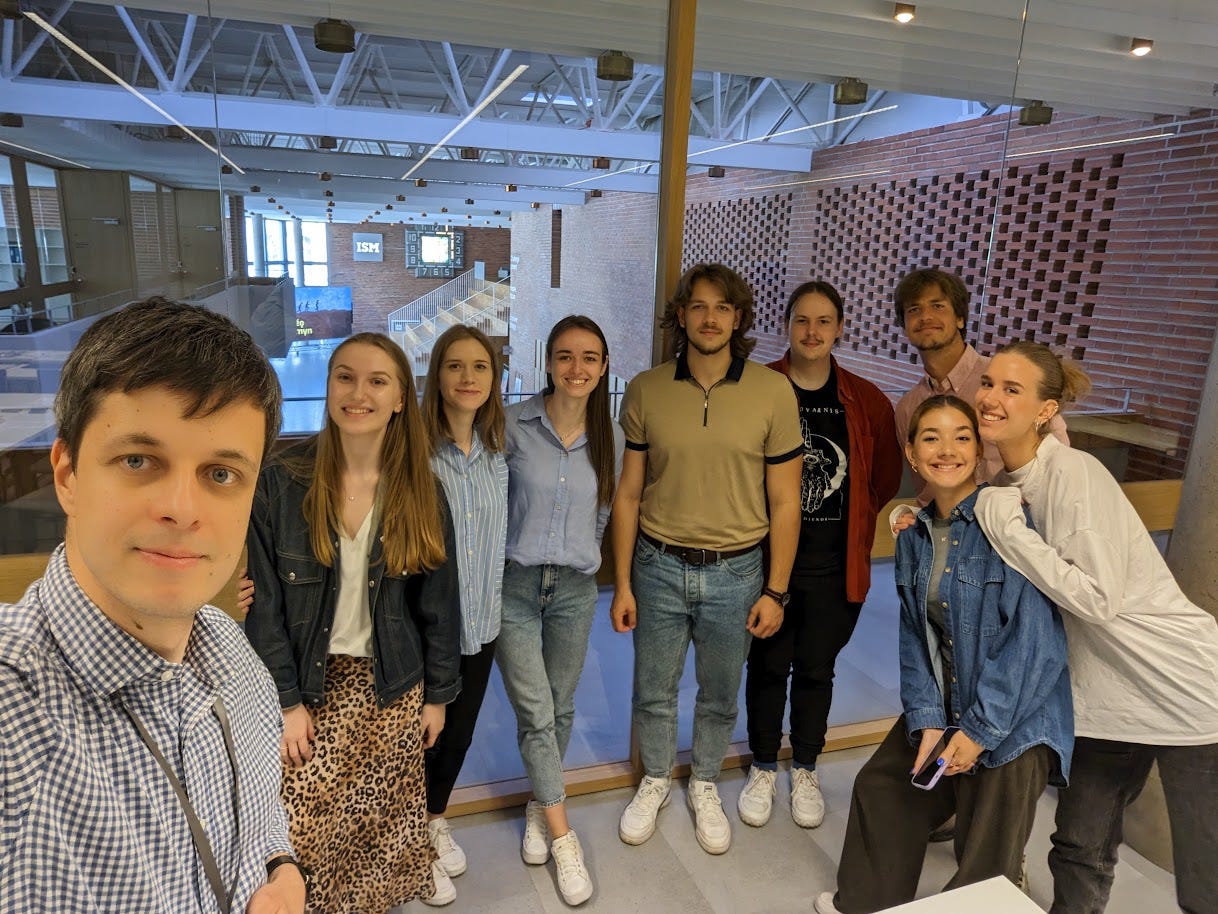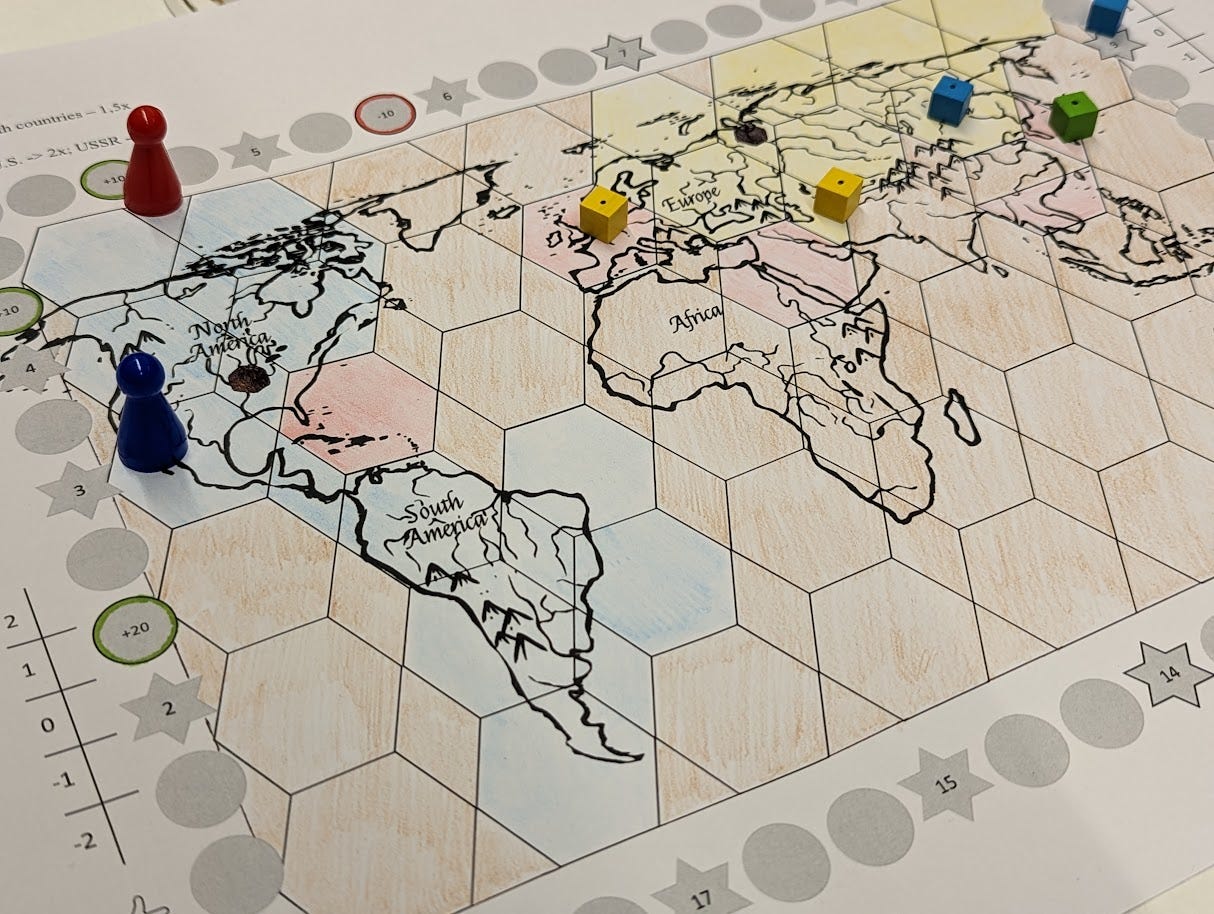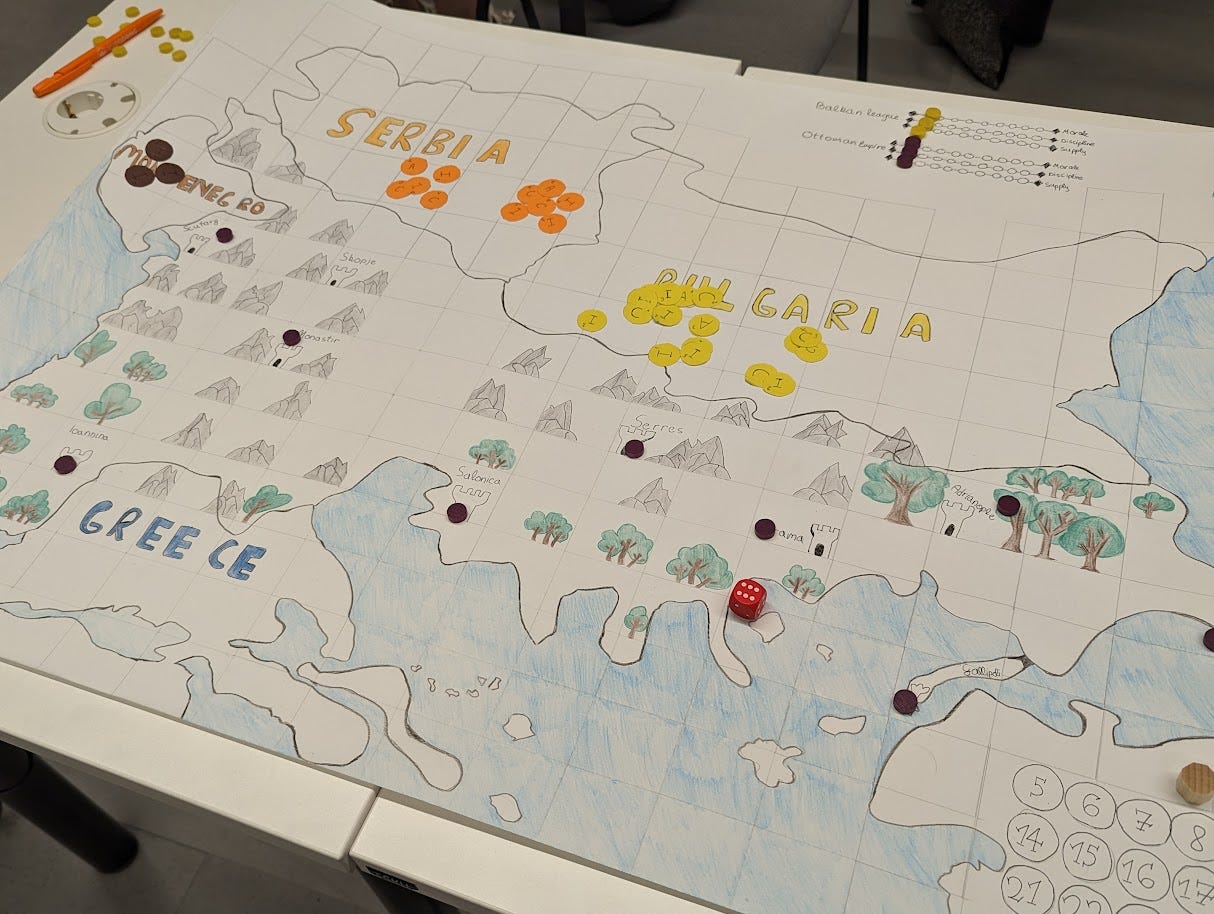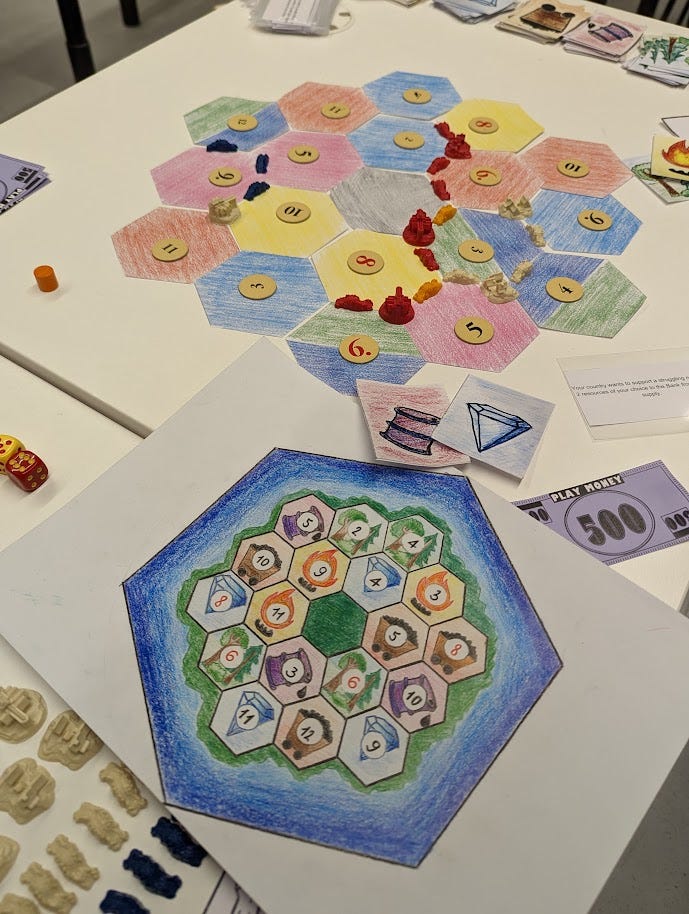The spring semester is over, and so is the course on Simulation Development in the Bachelor of Economics and Politics programme at ISM University of Management and Economics, Vilnius, Lithuania. Due to the pandemic, the last time that the course was held, most of it virtual. So, for the first time it was possible to hold all the sessions face to face, which made the sessions much more interactive. The main part of the course is the students' projects, where they design their own board games to reflect political and economic processes or theories that they learn about in the programme. Last week, they just had their presentation day (including with unexpected but certainly welcome and interested guests from seven different Nordic universities).
In total, four different games have been developed this semester, covering quite different topics. At the same time, each of these games has a certain element of conflict to ensure interaction between the players (i.e. the games are “multiplayer solos” or pure cooperation). Below is a brief description of each of them as they were presented.
Paula and Silvija developed a game about the Cold War nuclear arms race between the US and the Soviet Union. Here, players try to deploy nuclear weapons particularly in strategic locations (e.g., Cuba, Western Europe), while expanding the infrastructure needed to make it possible. Nuclear armaments can also affect both the popularity and the economy of a country's leadership, which does not necessarily give an advantage over the opponent... Players can also try to play the event cards, but the dilemmas they present may again be harmful.
Eva and Valdas decided to simulate the First Balkan War (1912-1913). Here, the players represent the Ottoman Empire and the Balkan League. However, since the Balkan League consisted of Bulgaria, Greece, Montenegro and Serbia, this player can only control one of them each turn. In this way, the Ottoman Empire, which is far less powerful in terms of the army size, can try to successfully defend itself and try retain at least half of the strongholds it needs for victory. The game is full of battles and sieges, all of which can be adjusted by a decisive spending of morality or discipline pints, or a thematically relevant event such as gaining the support of one of the great powers.
The third game, developed by Benas and Vytenis, takes us back to the 17th century Northern Wars. Here, the Polish-Lithuanian Commonwealth, Russia, and Sweden jostle for territory as players try to manage military and political resources. After all, can a ruler who is actively disliked expect anything good from his armies? There are not that many troops, so their strategic movement is important, as is the manoeuvring between different alliances and parallel card-simulated events (such as the rise of impostor tsars).
Finally, Anahita and Emilija developed a game simulating not specific historical events, but rather the theory of the resource curse, which states that when dictators find natural resources, the prospects of democratisation of the country are greatly diminished... The game itself is based on Catan, but adds a distinction between private (more relevant to dictators) and public (more relevant to democratic leaders) goods, and presents two paths to victory, thus creating a new approach via well-known mechanics.
Thank you to the students for their engagement throughout the course and for the work they put into this unusual assignment, which requires thematic knowledge, social process modelling skills, creativity, and an understanding of game mechanics. The results show that the integration of all these aspects has been successful.
We also used the following games as part of the learning process:
The Shores of Tripoli (Kevin Bertram, Fort Circle Games)
Maria (Richard Sivél, Histogame)
Watergate (Matthias Cramer, Capstone Games)
Turning Tides (Betsy Joslyn, accessed at https://paxsims.wordpress.com/2022/12/04/turning-tides/)
Root (Cole Wehrle, Leder Games)
Pax Pamir (second edition, Cole Wehrle, Wehrlegig Games)
Cuba Libre (Volko Ruhnke and Jeff Grossmann, GMT Games)
We Are Coming, Nineveh! (Harrison Brewer, Rex Brynen, Juliette Le Ménahèze and Brian Train, NUTS! Publishing)
Rivalries of the Roman Republic (Jeremiah, McCall, in development)
Bear Rising (NATO ACT, available at: https://paxsims.wordpress.com/2019/10/18/bear-rising-matrix-game)
And soon it will be time to start thinking about how to set things up for next year :)







Consider Hapsburg Eclipse. The game engine is straightforward. Time to play is reasonable: 60 minutes. Team or class play is possible.